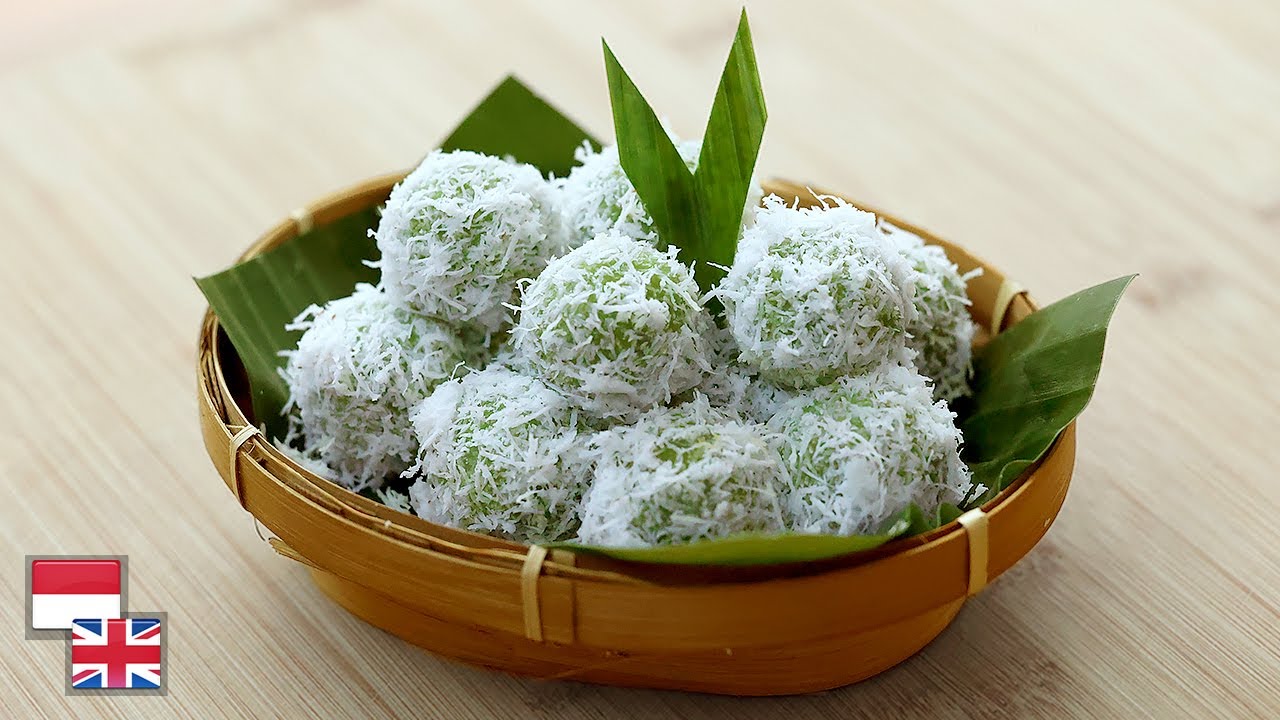Kue Dongkal Kuliner Khas Bekasi
Summary
TLDRKue dongkal is a traditional snack from Bekasi, known for its soft texture and nostalgic appeal. Made from rice flour and grated coconut, it is steamed using traditional methods, maintaining its heritage. Despite its old-fashioned roots, it remains popular today, especially among those longing for the flavors of the past. Beyond its taste, kue dongkal carries deep philosophical meaning: the sweetness of palm sugar symbolizes life’s good moments, while its conical shape represents the importance of a strong foundation, ultimately pointing to a spiritual connection with the divine.
Takeaways
- 😀 Kue Dongkal is a traditional snack from Bekasi, Indonesia, known for its historical significance and deep philosophy.
- 😀 The snack was once called 'Jabu Randudongkal' and continues to be popular, despite the modern range of snacks available today.
- 😀 Kue Dongkal is cherished by those who want to reminisce about the flavors of the past.
- 😀 The snack is made by mixing rice flour and grated coconut, then steaming it using traditional methods.
- 😀 Kue Dongkal is shaped like a cone, similar to the traditional 'nasi tumpeng', symbolizing life that needs a strong foundation.
- 😀 The sweetness of palm sugar within the layers of the rice flour represents the idea that life is not always bitter, and there are moments of sweetness.
- 😀 The cone-shaped form of the kue symbolizes the journey of life, which all narrows towards a higher power, representing God.
- 😀 A vendor from Desa Srimukti, Tambun Utara, is a third-generation seller of Kue Dongkal, continuing a family tradition since 1980.
- 😀 Despite being a 'jadul' or vintage snack, Kue Dongkal is still sold today, with a price of IDR 10,000 per serving.
- 😀 The vendor's business has been passed down through generations, with traditional ways of making and selling the kue still in practice.
Q & A
What is kue dongkal, and why is it significant in Bekasi?
-Kue dongkal is a traditional snack from Bekasi known for its sweet, chewy texture. It holds cultural significance as a nostalgic treat, especially for those who want to relive the flavors of the past.
What was kue dongkal originally called?
-Kue dongkal was originally called 'Jabu Randudongkal.'
Why does kue dongkal remain popular despite being an old snack?
-Despite being a traditional snack, kue dongkal remains popular because many people enjoy its nostalgic value, especially those longing for foods from the past.
How is kue dongkal prepared?
-Kue dongkal is made by mixing rice flour with grated coconut, then steaming the mixture in a traditional cone-shaped mold.
What is the role of the traditional steaming process in preparing kue dongkal?
-The traditional steaming process helps give the kue its soft and chewy texture while also enhancing its sweetness.
How much does a portion of kue dongkal typically cost?
-A portion of kue dongkal typically costs around IDR 10,000.
How is the kue dongkal sold?
-Kue dongkal is usually sold by street vendors, many of whom are from families with a long-standing tradition of making and selling the treat.
What is the philosophical meaning behind kue dongkal's sweetness?
-The sweetness of kue dongkal, made from palm sugar, symbolizes that life is not always bitter and that there are moments of sweetness amidst challenges.
What does the cone shape of kue dongkal represent?
-The cone shape of kue dongkal represents the journey of life, which requires a strong foundation. The point of the cone symbolizes the ultimate connection to the divine, with all paths leading to God.
Why is kue dongkal an important part of Bekasi's cultural heritage?
-Kue dongkal is an important cultural symbol of Bekasi because it represents both the region's culinary history and the deeper moral and philosophical lessons it imparts about life and spirituality.
Outlines

此内容仅限付费用户访问。 请升级后访问。
立即升级Mindmap

此内容仅限付费用户访问。 请升级后访问。
立即升级Keywords

此内容仅限付费用户访问。 请升级后访问。
立即升级Highlights

此内容仅限付费用户访问。 请升级后访问。
立即升级Transcripts

此内容仅限付费用户访问。 请升级后访问。
立即升级浏览更多相关视频

BEKASI MERAPAT MAKANAN KHAS BEKASI PALING POPULER | KULINER BEKASI

Kue PASOQ Khas Sulawesi Barat Sekali Gigit Bikin Ambyar | RAGAM INDONESIA (04/01/21)

EMPUK SEHARIAN! Resep KUE KLEPON: Lembut, Kenyal, Lumer Di Mulut [Takjil]

RED SUGAR CAKE

OLAHAN SINGKONG PALING ENAK !! MISRO GULA MERAH, LEMBUT DI DALAM GARUNG DI LUAR !!!

Tradisi Kuras Bendungan di Tegal Diserbu Warga yang Ingin Mendapatkan Ikan | Kabar Siang tvOne
5.0 / 5 (0 votes)
